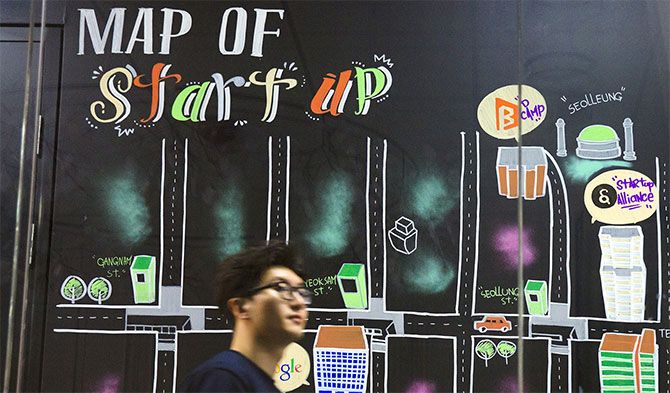The move is expected to create space for more budding entrepreneurs in the country to be eligible for self-certification, relaxed public procurement norms, rebate in patent filing, start-up funding, investment and easier closure compliance.

The Start Up India policy - first announced by Prime Minister Narendra Modi in his second Independence Day speech in 2015 - is ready for a makeover. Even as the policy guidelines, issued in January 2016 in another mega event, promised many sops to entrepreneurs, the plan has failed to attract start-ups the way it had set out to.
Definition to be relaxed for biotechnology sector - from up to 5 years of incorporation to 8 years due to longer gestation period
DIPP to allow rejected entities to apply again for the tax exemption benefits
In the May 1 inter-ministerial board meeting, 12 entities approved for tax exemption from the 62 considered
In 2016-17, only 10 entities approved from the 142 for tax exemptions
Of the 2,408 applications received for recognition without tax breaks, 742 have been approved as start-ups by DIPP
The government is likely to tweak the Start Up India policy within a fortnight to accommodate more innovations, an official aware of the developments told Business Standard.
The definition of the policy would be changed as well, making it more liberal for the biotechnology sector in particular, he said. Also, the tweaked policy would mean a second chance for any entity that has faced rejection in the past.
In the biotechnology sector, a start-up could benefit from the policy up to eight years of incorporation, up from the five-year criterion currently. This is because of the relatively long gestation period of the biotech sector, compared to information technology and manufacturing, it is believed.
The move by the Department of Industrial Policy and Promotion (DIPP), the nodal agency for the policy, is expected to create space for more budding entrepreneurs in the country to be eligible for self-certification, relaxed public procurement norms, rebate in patent filing, start-up funding, investment and easier closure compliance.
Besides the definition change, the DIPP is likely to allow rejected entities to apply again for tax-exemption benefits. Softening the earlier stance of not considering once-rejected applications again for tax breaks, the DIPP has said such proposals would be reviewed.
“The only mandate for acceptance or rejection of proposals is that the idea has to be innovative. The entity may have applied at a premature stage. It may have grown and advanced over time.
It cannot be a yardstick for a particular company for all times. They will be allowed to apply again,” said the official.
Recent reports suggested that only Rs 5.66 crore funding has been infused into start-ups under the scheme so far, while the government had planned to set up a Rs 10,000-crore fund of funds for the purpose.
Fund manager Small Industrial Development Bank of India, or Sidbi, has to create the full corpus of Rs 10,000 crore by 2025, of which a Rs 1,315-crore fund has been created so far.
But government officials indicated that the pace of approval had picked up. The inter-ministerial board (IMB) approved about 12 start-ups for tax exemption benefits from the 62 considered in the latest meeting on May 1.
In all of 2016-17, only 10 start-ups got approval for a tax break from the 142 applications considered. The IMB includes officials from the DIPP, Department of Science and Technology, and Department of Biotechnology. Now, the Ministry of Electronics and Information Technology has also been included in the IMB.
Only those start-ups incorporated since April 1, 2016, are eligible to be considered for tax breaks from income-tax on profits and capital gains tax. The eligible start-ups can avail a three-year tax holiday in a block of seven years now, against five years announced last year.
The condition was relaxed in this year’s Budget announced on February 1 to ease financial burden on start-ups and their founders.
A start-up is an entity, incorporated or registered in India not prior to five years, with an annual turnover not exceeding Rs 25 crore in any preceding fiscal year and working towards innovation, development, deployment or commercialisation of new products, processes or services driven by technology or intellectual property.
Of the 2,408 applications received for recognition without tax breaks, 742 have been approved as start-ups by the DIPP.
Photograph: Thomas Peter/Reuters










